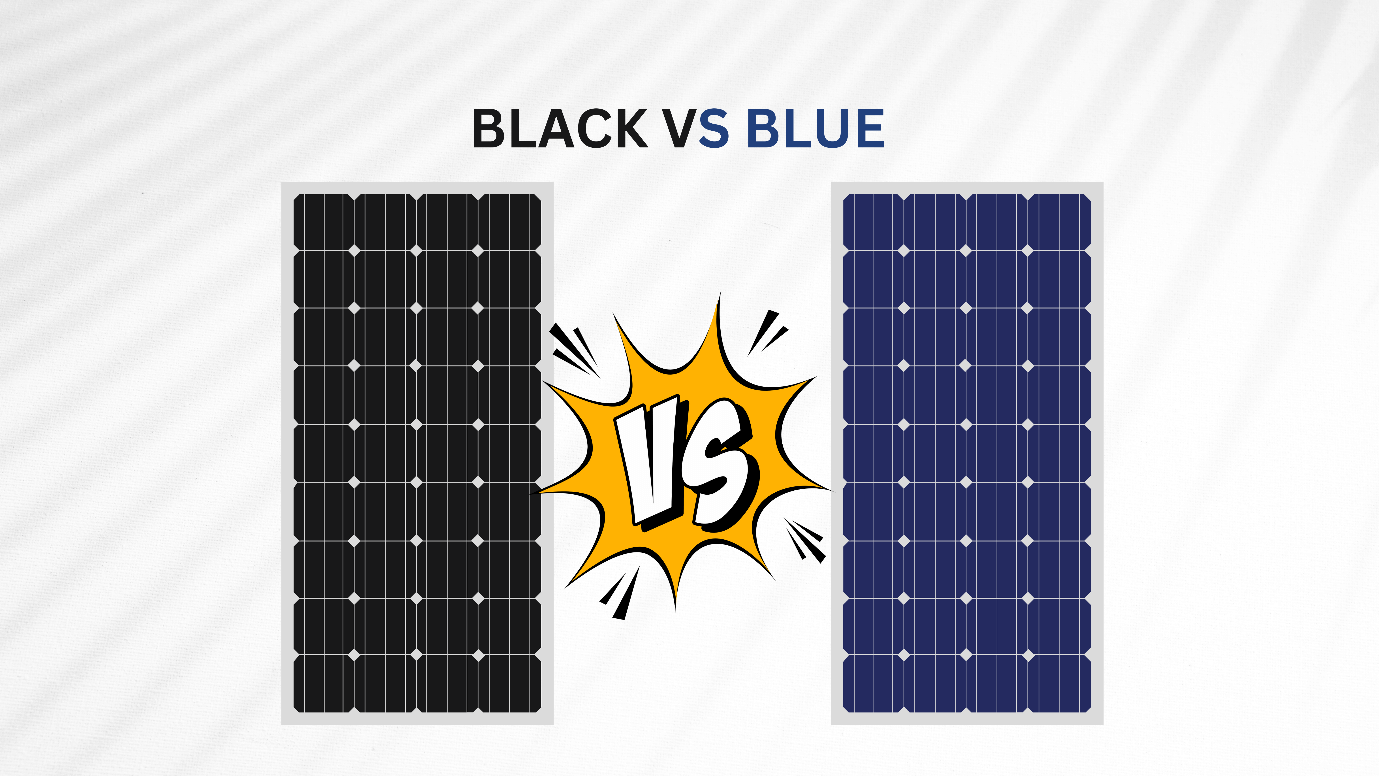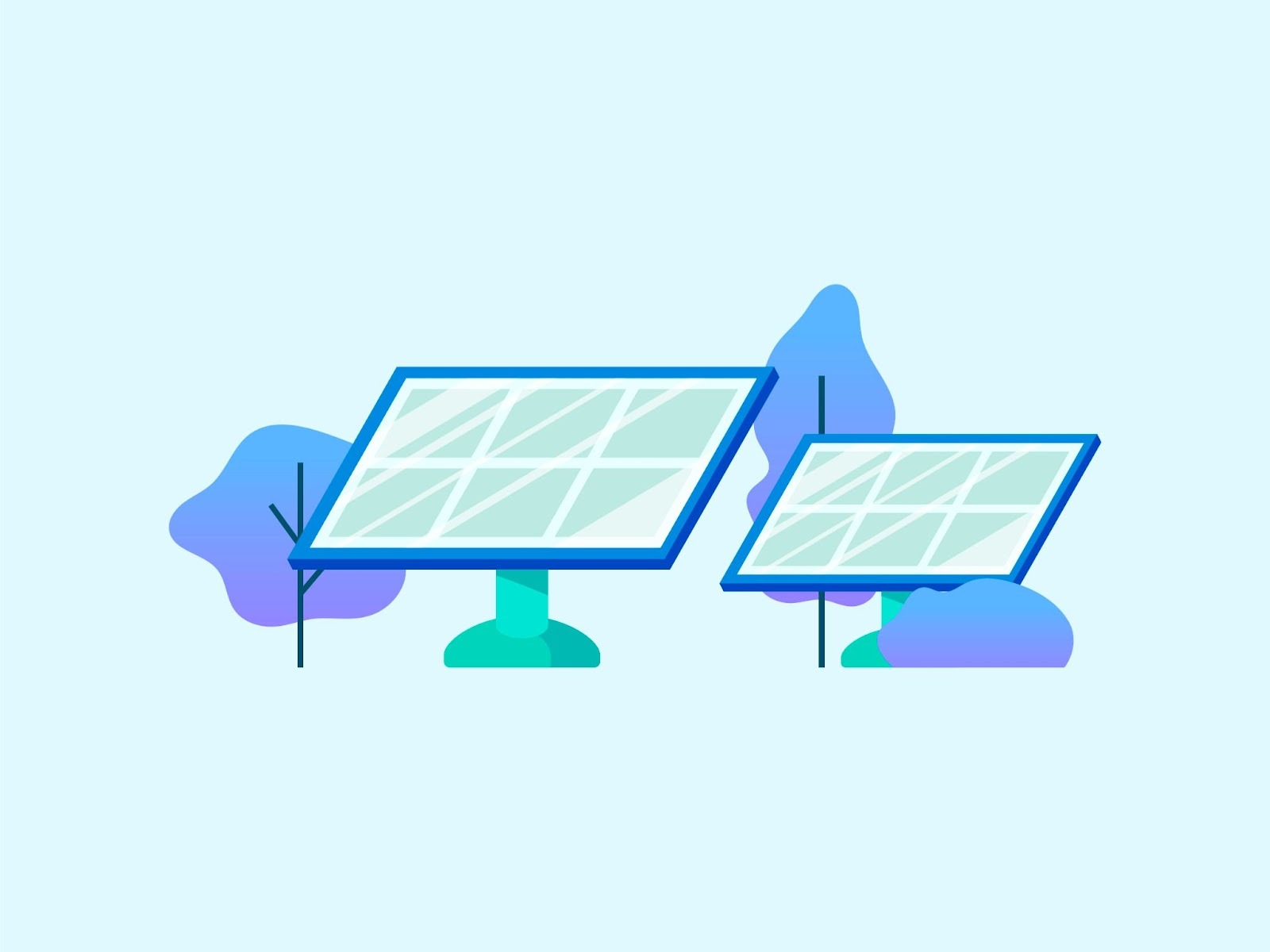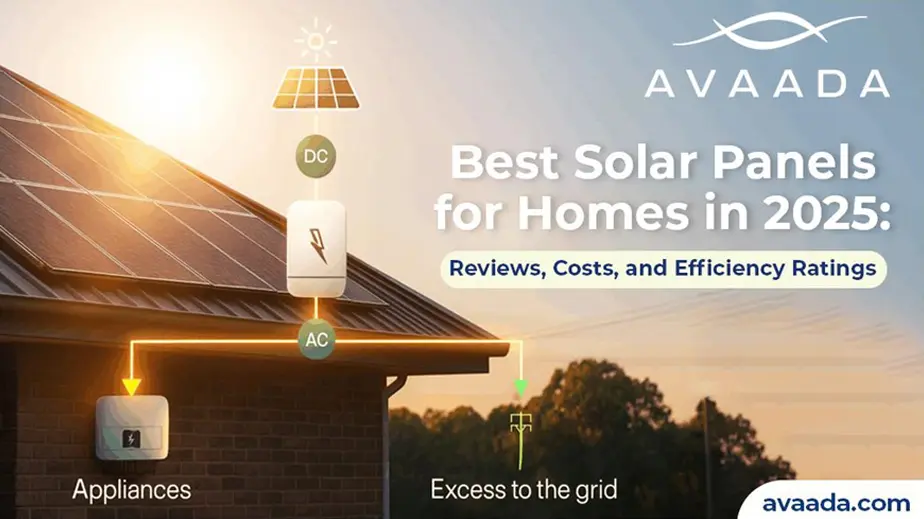“Green energy isn’t just about helping the environment. It’s also about the future—a future where we can all breathe cleaner air and enjoy a healthier planet. So, when it comes to solar panels, make sure you choose the right one.” Leonardo DiCaprio, Actor and Climate Activist
An eco-friendly power source that is expanding quickly is solar energy. As the demand for solar panels continues to rise, so does the variety of options available to consumers. Black and blue solar panels are two common options. But how do they differ from one another, and which is the better option for your requirements? We will examine the features, benefits, and drawbacks of both black and blue solar panels in this post to assist you in making an informed choice.
Black vs. Blue Solar Panel
Let’s discuss if there is a difference between black and blue solar panels. The answer is, indeed, that there is a distinction between blue and black solar panels, and it has to do with the manufacturing process. Silicon is one of the best semiconductor materials available today for absorbing solar radiation and converting it into an electric charge in photovoltaic (PV) panels. The way the manufacturer utilized silicon during the production process and the way that specific type of panel responds to light determine the hue of the panel that you see.
In order to enhance their ability to absorb light and produce power, some solar panels’ manufacturers coat them with an anti-reflective material, which makes them appear blue. Just remember that the panels aren’t simply painted or dyed a particular hue—rather, their color is an inherent byproduct of the way they are made.

What Is A Black Solar Panel?
Black solar panels, also known as monocrystalline solar panels, are made from a single silicon crystal structure. Monocrystalline solar panels are made from silicon that has been refined to have a high level of purity. In a monocrystalline solar cell, the silicon aligns the crystal structure in a consistent and uniform manner. This alignment creates a single, large silicon crystal within the solar cell. The specific crystal structure of monocrystalline silicon affects how light interacts with the material, making the solar panel appear black in color.
Also read : What is solar energy?
What Is A Blue Solar Panel?
Blue solar panels, or polycrystalline panels, utilize silicon as their base material, featuring a distinctive blue hue due to their crystal structure. Polycrystalline silicon is created by fusing multiple silicon fragments, forming visible boundaries between crystals. These boundaries scatter and reflect shorter-wavelength light, creating the blue color. Additionally, anti-reflective coatings are applied during manufacturing to reduce sunlight reflection and enhance light absorption, enhancing the panels’ blue appearance.
What Is The Difference Between Black And Blue Solar Panels?
Let’s delve deep into understanding the difference between black and blue solar panels by analyzing this chart, which showcases the difference between black and blue solar panels.
| Criteria | Black Panel | Blue panel |
| Aesthetic Appeal | Characterized by a smooth, black appearance and high-quality silicon | Characterized by visible crystals, a more scattered look, and lower-quality silicon |
| Space Occupancy | Occupies less space and has a longer lifespan | Require slightly more space to produce the same amount of energy as black panels. |
| Production Waste | Formed through an energy-intensive production process that generates a lot of waste | Less complicated production process with minimal waste production |
| Cost | Carry a higher price tag for installers and consumers | More affordable |
| Availability | Commonly available and widely used | Less common and limited availability |
| Energy Generation | Often more efficient in converting sunlight to electricity | May be less efficient due to the color, but technological advancements can improve efficiency |
Black V/S Blue Solar Panel: Which Is More Suitable For You?
The decision between black vs blue solar panels ultimately comes down to your personal demands, tastes, and budget. Blue solar panels are the best option if cost-effectiveness and efficiency are your top priorities. They are a reliable solution that won’t break the bank and will produce superb energy. Black solar panels are worth the extra cost if you place a high value on appearance and curb appeal. They can blend in perfectly with the style of your roof, keeping your solar installation almost undetectable to passersby. It’s also critical to consider your location and the amount of sunshine available. Any kind can be effective if you live in a place with regularly clear skies and lots of sunshine.
Also Read: What is Decarbonization? And Pathway of a Net-Zero World
Conclusion
As the solar energy industry continues to evolve, the choice between black and blue solar panels has become more than just a matter of personal preference. It’s about optimizing your investment in clean, renewable energy. Whether you opt for the traditional blue panels or the sleek black ones, you’re making a significant contribution to a cleaner and greener planet. So, choose wisely and embrace the power of the sun to create a brighter, more sustainable future.
FAQ’s
1) Do Black And Blue Solar Panels Have Different Efficiency Levels?
Given their greater efficiency rating, black panels can produce more electricity per unit of surface area. Black panels are more efficient than blue panels, thus they may be installed in small spaces because they take up less space during installation.
2) Are There Any Maintenance Differences Between Black Vs Blue Solar Panels?
Maintenance differences between black vs blue solar panels are minimal. Both require regular cleaning, shading avoidance, and quality installation. Panel color isn’t a significant factor. Quality, environmental conditions, and proper maintenance are more critical for long-term performance and durability.
3) Are There Any Government Incentives Or Rebates Specific To One Type Of Solar Panel Over The Other?
No, there is no government incentives or rebates specific to one type of solar panel in India.
4) Can I Mix Black And Blue Solar Panels In The Same Solar Array?
Although it’s possible to mix black and blue solar panels in the same array, it is not recommended, and one must typically stick with one type for a clean and uniform installation. If you do choose to mix panels, it’s crucial to work with a knowledgeable solar installer to ensure the system’s efficiency and long-term reliability.









